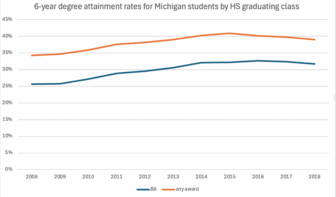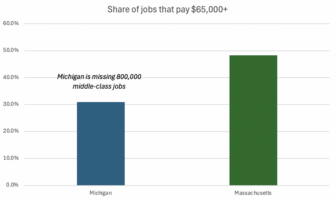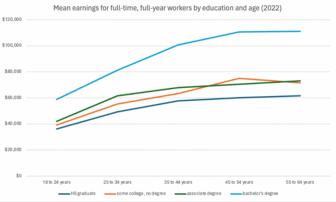Once in a long while you read something that you could have written word for work. That is the case for me and today’s Free Press editorial. Worth reading and take a look at the terrific charts as well.
The editorial is titled: Graduate to a Smarter State. With a subtitle of Michigan’s economic future depends on helping more residents get college degrees. That’s the basic belief that underpins all of Michigan Future’s work for a decade or more.
The editorial presents data that the states with the highest incomes are those with the highest proportion of adults with a four-year degree. That talent – not taxes – is what is driving prosperity.
As we say in every presentation, Michigan’s fundamental problem is that we are thirty fourth in college attainment. Nothing else comes close!. If we don’t improve in education attainment we will be one of the poorest states in the country. In an industrial economy you could be prosperous with relatively low education attainment. No more!
So that means that preparing, retaining and attracting talent becomes the economic growth priority for policy makers. Not getting taxes right, picking industries or winning the next competition for a factory. Do all those things well and not concentrate talent here, we will continue to get poorer compared to the nation.






